- Recent Posts
- Grooming & Personal Care
- Hair Care
- Squatch Men: Lifestyle
- The Great Outdoors
- Natural Living & Health
- Man Stuff
- Ultimate Guides
Thu, Jun 26, 2014• 03:00• Natural Living & Health
Triclosan Soap – What’s the Big Deal?
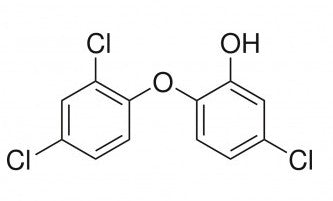
What is Triclosan?
Triclosan is an antibacterial and antifungal ingredient in a variety of body soaps, cleaning products, and toothpastes. Most often, this compound is found in “antibacterial” soaps; over 75 percent of all soaps and body washes contain this chemical. Because of the influx of negative press, companies are now marketing triclosan under a variety of different names, including UltraFresh, Amicor, and BioFresh.
Why is Triclosan so bad?
Chemically, triclosan is a chlorinated aromatic compound that is both an ether and a phenol. The compound is only slightly water soluble. When triclosan is combined with chlorinated tap water, (like when washing your hands), a chemical reaction occurs and harmful dioxins are produced. These dioxins can be harmful and many have been shown interfere with mammalian endocrine systems, (read: human hormone disruptors!).
Moreover, children who have had high levels of exposure to triclosan have shown to have higher rates of allergies.
Another reason for the triclosan ban is that it is a likely contributor to bacterial resistance. Bacterial resistance is when potentially dangerous pathogens develop resistances to antibacterials and antibiotics. However, like many causalities, it is extraordinarily difficult to prove causation.

Triclosan and the Environment [The Dr.’s Home!]
High levels of triclosan can damage aquatic plant life and algae. Although we don’t think much about the little green guys in the water, triclosan’s effect on algae is particularly troubling. The compound inhibits algae’s photosynthesis process and algae, as a bi-product of photosynthesis, produces a huge percentage of Earth’s oxygen.
Because it is found in a variety of products, triclosan soap is typically washed down the drain and into our water system. While water treatment plants can remove much of the offending chemical, some amount stays in the water and the residual buildup can lead to harmful accumulation.
Which Soap to Use?
Dr. Squatch Soap, of course! Researchers at the University of Michigan have studied the difference between antibacterial soap and normal soap, (like Dr. Squatch), and found that normal soap is as effective as antibacterial soap for man and Squatch alike! So whether you’re washing in the tub, shower, or river basin, grab your bar of men’s soap and get scrubbin!
Check out our collection of natural soaps here!

Related Posts
WTF are Plant Butters?
Wed, Jan 22, 2025• Grooming & Personal Care Natural Living & Health
You might be wondering, “WTF are “plant butters”? Is that like vegan “I can’t believe it’s not butter?”. No, but we’re glad you asked. These rich, ...
Read More5 Protips For A Better Shave
Fri, Jan 03, 2025• Grooming & Personal Care
Let’s be real, shaving is a combat sport. I mean you’re dragging a sharp blade across your face on the reg. Nicks, irritation, tight, dry skin afte...
Read MorePucker Up: Lip Care For Men 101
Fri, Dec 20, 2024• Grooming & Personal Care
Let’s face it (see what we did there?)—lip care is for everyone. Whether you're battling the elements, exploring the great outdoors, or just living...
Read MoreHow To Choose the Right Cool Weather Scent
Mon, Dec 16, 2024• Grooming & Personal Care
No matter where you’re at, we deep into the cool and cold weather (well, not you Hawaii) and that means it’s time to evaluate your scent seasonalit...
Read MoreCategories
Recent Posts
-
WTF are Plant Butters?
Wed, Jan 22, 2025
-
5 Protips For A Better Shave
Fri, Jan 03, 2025
-
Pucker Up: Lip Care For Men 101
Fri, Dec 20, 2024
-
How To Choose the Right Cool Weather Scent
Mon, Dec 16, 2024
-
The Top 8 Holiday Movies Of All Time
Thu, Dec 05, 2024

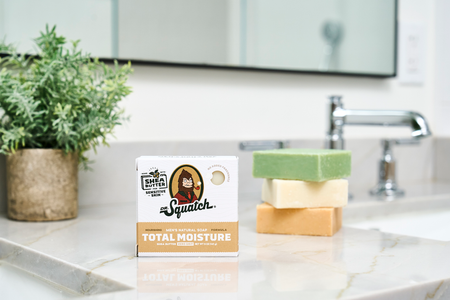
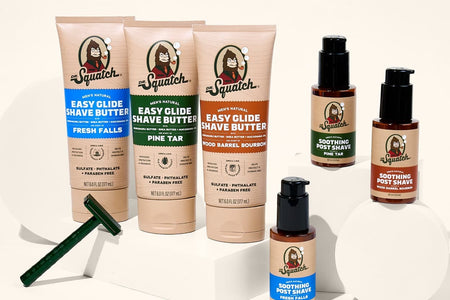
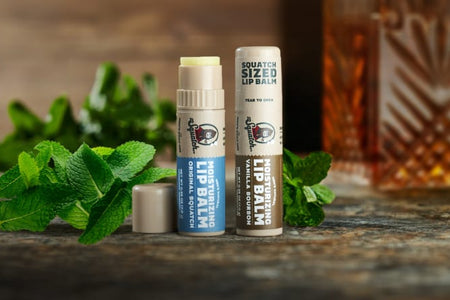

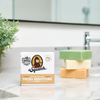
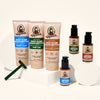
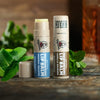


Leave a Reply
Your email address will not be published. Required fields are marked *